Donald Trump and me: What I saw from my front row seat to history as US correspondent
As US correspondent Tom Minear says farewell to America, he reflects on how Donald Trump went from a one-term oddity to the defining leader of his generation.
North America
Don't miss out on the headlines from North America. Followed categories will be added to My News.
It is often said journalists have a front-row seat to history, and although this is an immense privilege, it is not always literally true.
On the final night of last year’s Republican convention, I and many fellow reporters were assigned seats behind the stage in Milwaukee’s Fiserv Forum, meaning that when Donald Trump accepted the party’s presidential nomination, we could not see him at all.
So I watched his supporters instead. They roared when he entered the stadium, some even moved to tears. And then when he spoke, they listened in reverential silence.
“I’m not supposed to be here,” Trump said solemnly.
Five days earlier, he was shot in the ear. Had he not tilted his head at the exact moment 20-year-old Thomas Crooks opened fire, he would surely have died. The former president’s candidacy was always going to be historic, but now, it felt almost providential.
“I stand before you in this arena only by the grace of almighty God,” Trump said, which I posted on our live blog. The other advantage of my vantage point, I realised, was that I could check his quotes on the teleprompter he was hewing unusually close to.
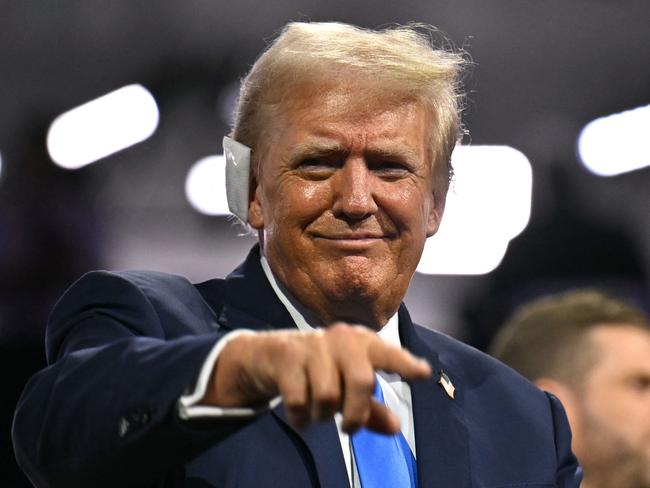
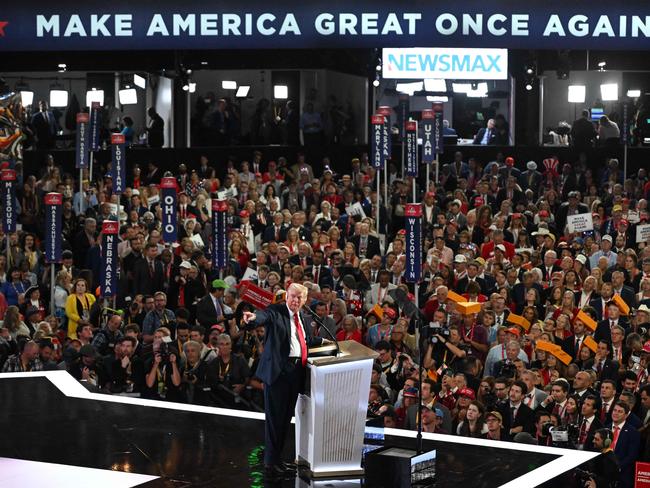
The 78-year-old’s family and friends said he was a changed man after he was shot, and as he pledged to bring the country together, I wondered if they were right. “The discord and division in our society must be healed,” he said. “We rise together or we fall apart.”
Moments later, however, I noticed the teleprompter had stopped. In what became the longest nomination address in modern history, at 92 minutes, it paused again and again for Trump’s off-script rants ranging from “crazy” Democrats to “the late, great Hannibal Lecter”.
He could not help himself. Walking back to my hotel, his dark rambling seemed like a missed opportunity. If Trump’s brush with death had changed him, it was to sharpen his grievances, rather than to free him from them.
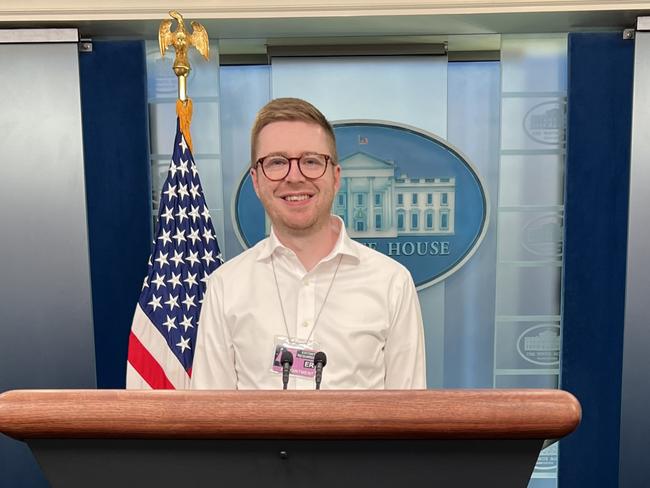
In the end, of course, it did not matter. For just the second time, Americans elected a president they had voted out of office, a milestone all the more remarkable given that unlike Grover Cleveland, Trump refused to accept his defeat and incited the January 6 riot.
His version of unity – in which only he could save the country from his evil election-rigging enemies – was enough to win in the divided United States.
On January 20, I was due to witness the beginning of Trump’s second term on the steps of the US Capitol, where the violence erupted four years beforehand. But freezing weather forced a smaller inauguration ceremony inside, and once again, I lost my front-row seat.
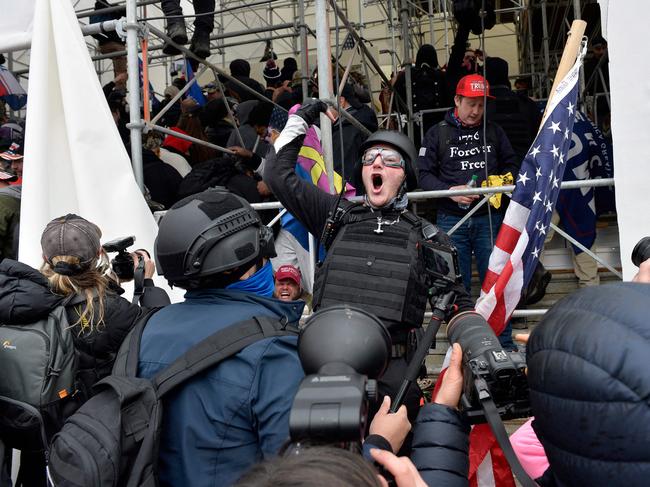
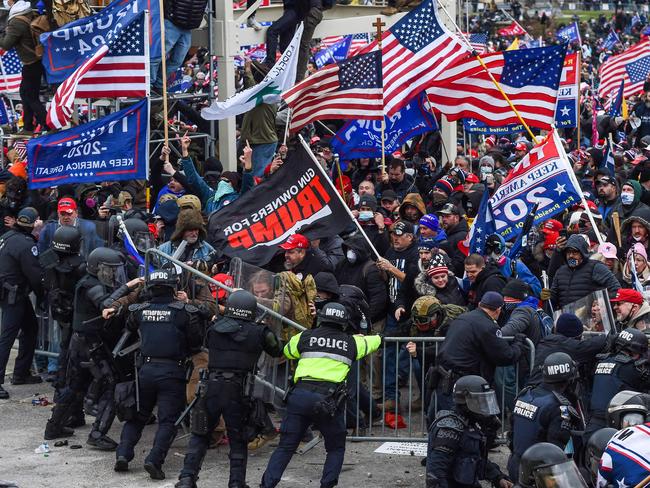
THE ALL-OUT FIGHT FOR AMERICA’S ATTENTION
Life as a foreign correspondent nonetheless takes you to some extraordinary places.
Over two and a half years in the US, I witnessed migrants crossing the Rio Grande in the hope of asylum, reviewed Kylie Minogue’s Las Vegas debut, and stood in the Oval Office as Joe Biden welcomed Anthony Albanese. (A Secret Service agent told me off for leaning on the Resolute Desk in the media crush.)
I investigated an Islamic State terrorist who recruited an Australian teenager, a presidential candidate who ripped off expats, and the cartels that teamed up with bikies to traffic drugs down under. I interviewed Hollywood stars and homeless people, sporting legends and nuclear submariners, powerful billionaires and dodgy fraudsters.
But all roads in my posting seemed to lead to politics. One night in Brooklyn, while waiting outside a locker room to interview Aussie NBA veteran Joe Ingles, I bumped into Bill Clinton.

Three months after I moved to New York, Trump announced his third presidential run. That he would win seemed improbable – his hand-picked congressional candidates had just been defeated in midterm elections despite Biden’s weaknesses – but by no means impossible.
That he would move back into the White House after being arrested four times, convicted once and nearly assassinated twice, and after being pitted against a new opponent 107 days before the election – well, even the most creative scriptwriter could not have imagined that.
“There are decades where nothing happens,” so goes the famous quote incorrectly attributed to Russian revolutionary Vladimir Lenin, “and there are weeks where decades happen.”
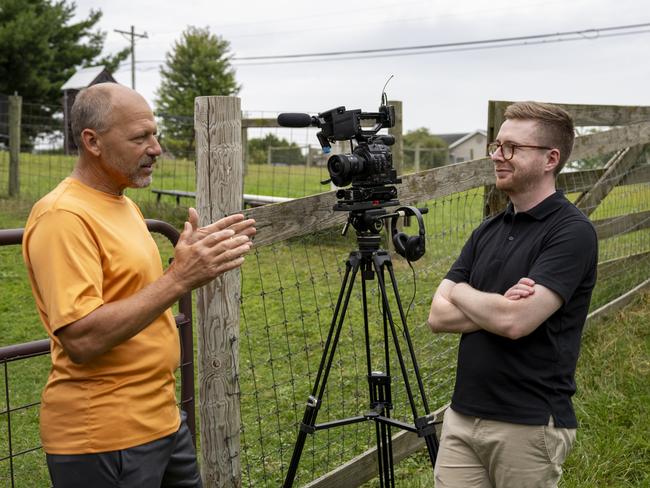
At this remarkable point in American history, it is bittersweet to be returning to Australia, but what comes next can only really be explained by understanding how the US ended up here.
Politics in the time of Trump is an all-out battle for attention, something the former reality TV star exploits better than anyone. He forces Americans on to the red team (Republican) or the blue team (Democrat), and both sides barrack like it is a spectator sport.
The curious thing about this comparison is that only the NFL has a similar grip on Americans’ attention. The ten most-watched TV broadcasts last year were NFL games – bigger than the Olympics, the Oscars and the election debate that ended Biden’s campaign.
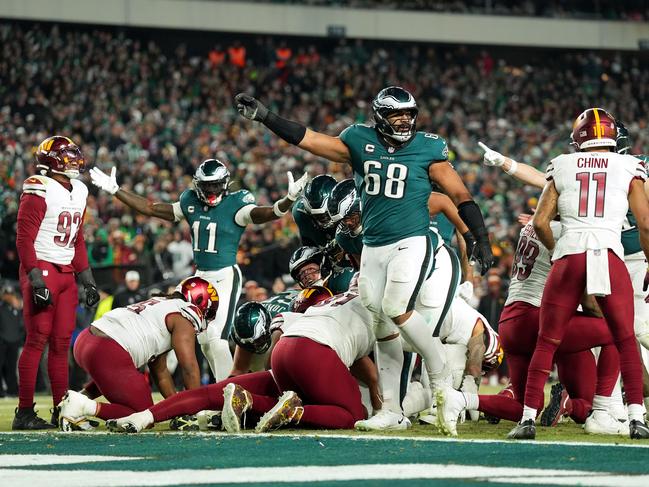
For a foreigner, comprehending the American psyche is only fully possible once you have spent a Sunday afternoon listening to the spine-tingling national anthem, saluting courageous veterans, and then watching a game that is at once fast, fastidious and fierce.
But whereas football brings Americans together, politics drives them apart. For diehard Republicans and Democrats, their affiliation is inextricably tied to their identity. They exist so deeply inside echo chambers that many refuse to marry anyone who votes differently and will cut ties with relatives who do.
In speaking to these people – as well as those who change their minds from election to election about which party to support and whether to vote at all – I have tried to understand why they feel the way they do. As politically divided as they may be, they are surprisingly united emotionally: in patriotism, in anger and in fear.
WHY MAGA WORKS – AND WHY IT DOESN’T
There is a simple reason why Make America Great Again has worked for Trump: America no longer feels great for Americans. While its economy is a global powerhouse rivalled only by China, its community is riddled with inequality, depression, isolation and distrust.
The US is among the world leaders in murders, fatal overdoses, suicides and child deaths. At 78.4, life expectancy is by far the worst of any comparably wealthy country. This is despite spending double as much as Australia on healthcare per capita – a statistic that shocked me as an expat adjusting to life without Medicare’s taxpayer-funded safety net.
Last year, when Luigi Mangione allegedly assassinated UnitedHealthcare boss Brian Thompson a few blocks from my Manhattan office, Americans were overwhelmingly willing to justify and even celebrate violence against an industry that caused them so much pain. Their fury and their glee laid bare not only a broken healthcare system but a broken society.
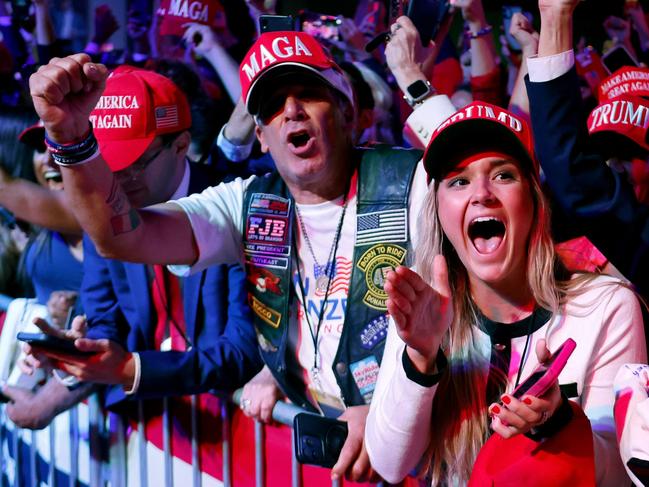
It is little wonder that a country so in need of disruption would return to Trump, the ultimate disrupter. “He runs the country like a business,” his followers told me time and again.
I was and remain sceptical of that. Trump has done more than anyone to undermine the government he runs, and while it needs radical reform, his shock-and-awe strategy is creating as many problems as it solves. For instance, while he has fired thousands of Internal Revenue Service staff and hopes to abolish it completely, he could wipe a third of the $US1.8 trillion deficit overnight if the tax office was capable of collecting what people owe.
THE ONE QUESTION AMERICANS ALWAYS ASK
As a correspondent, the temptation in covering Trump is to focus on his loyal supporters at his rallies. On the day of his inauguration, tens of thousands queued outside a stadium for hours in bone-chilling conditions, despite knowing they were unlikely to get inside to see him.
There is a lot to learn from them, both good (they care about their country with a fervour that would be unrecognisable in Australian politics) and bad (they are convinced of baseless conspiracies about election integrity which directly threaten America’s democracy).
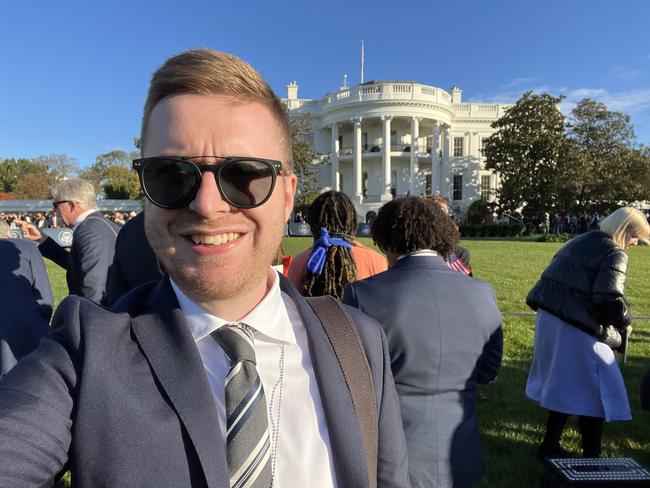
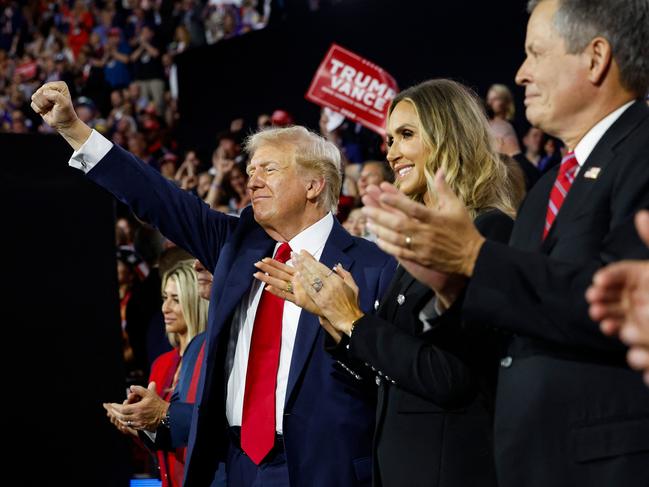
I often found it more illuminating, however, to speak to those who voted for Trump reluctantly, because they swung the election in his direction. For all the President’s boasting about a dominant landslide, had some 115,000 people across three states changed their votes, Trump would have been a one-term oddity rather than the defining leader of his generation.
In my travels, I found swinging voters regularly judged that with two options on the ballot, they could not pick the one to blame for soaring inflation and record illegal immigration. On balance, they believed solving those problems was worth the risk.
I wonder now whether they have any regrets, as Trump attacks America’s allies, sidles up to authoritarians, ignores court orders, defies laws, cracks down on dissenters, and muses about an unconstitutional third term. As I move home, they will be stories for others to cover.
I find myself thinking, too, about the question that invariably came up in my interviews with Americans. The irony, for a reporter like me, was that I was the one being asked to answer it.
What do Australians think of our politics? In big cities and small towns, from the coasts to the heartland, ordinary Republicans and Democrats alike wanted to know, as though they realised that in a time defined by Trump, it is not so easy to be all the way with the USA.
More Coverage
Originally published as Donald Trump and me: What I saw from my front row seat to history as US correspondent




